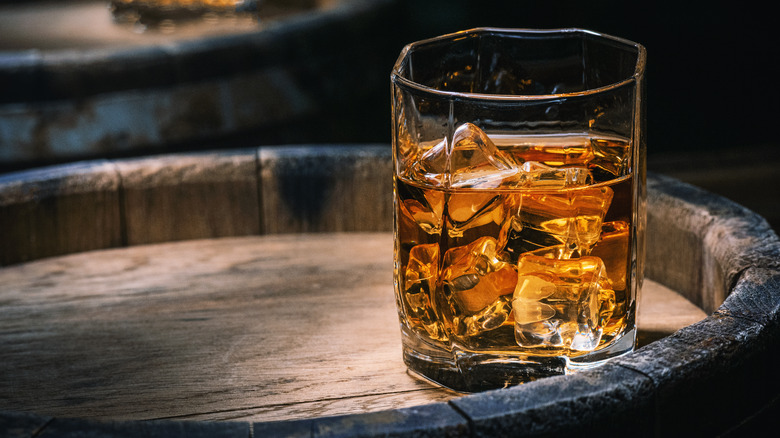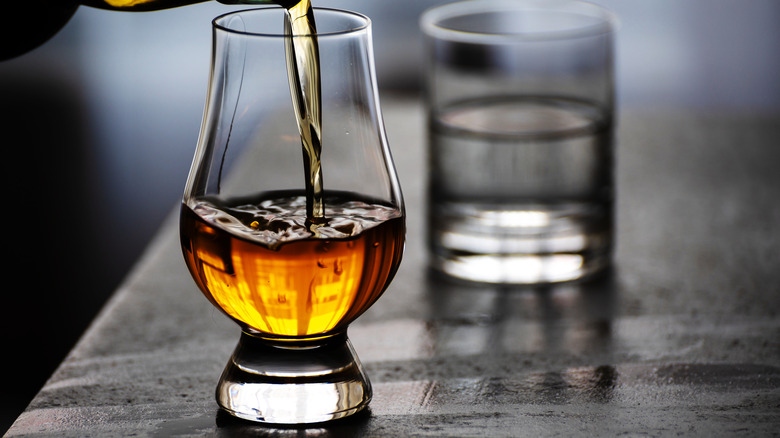Here's Why You Shouldn't Add Tap Water To Scotch Whisky
When you order Scotch at a bar, you might consider a few different options: neat (with no ice or water), on the rocks with ice, or mixed with something. One notable drink combination involving this type of whisky is a Scotch and soda, also called a Scotch highball. It entails serving Scotch blended with sparkling water on ice. The type of ice you use — as well as the amount of ice applied — all matter when making a beverage with Scotch whisky. For the perfect Scotch highball, remember this: Colder is better, and larger cubes that don't melt as fast will help enhance the experience.
The variety of Scotch you select is also an essential component, but it may surprise you to learn that adding water to your whiskey can contribute to improving Scotch. It's even supported by science. According to NPR, a study conducted by Swedish chemists in Scientific Reports stated that incorporating water into whiskey can boost its aromatics. Water dilution interacts with the ethanol in Scotch whisky, which affects the drink's taste and scent. Like ice, the kind of water utilized makes a difference as well.
Distilled water is best
Tap water might be fine for cooking and hydrating, but, according to mixologists, it doesn't make the best accompaniment to Scotch whisky. The reason for this has to do with the dissolved minerals present in tap water, which can detract from the flavor of Scotch. The experts at Cook's Illustrated held a Scotch taste test that pitted distilled water against tap water to discern the differences and gauge how each impacts the palate.
They found that distilled water, which does not contain any minerals, actually bolstered whisky's flavor. These bold experimenters also discovered that distilled water led to a drinking experience that was smoother overall and really captured the peaty, buttery aromas of Scotch.
So, what's the perfect amount of distilled water needed to dilute Scotch whisky? Cook's crew recommends anywhere from 1 teaspoon to 1 tablespoon per 2-ounce pour of 100-proof liquor depending on each individual's taste. Much like the intrepid team at Cook's, finding your ideal balance of distilled water dilution may take some trial and error.

